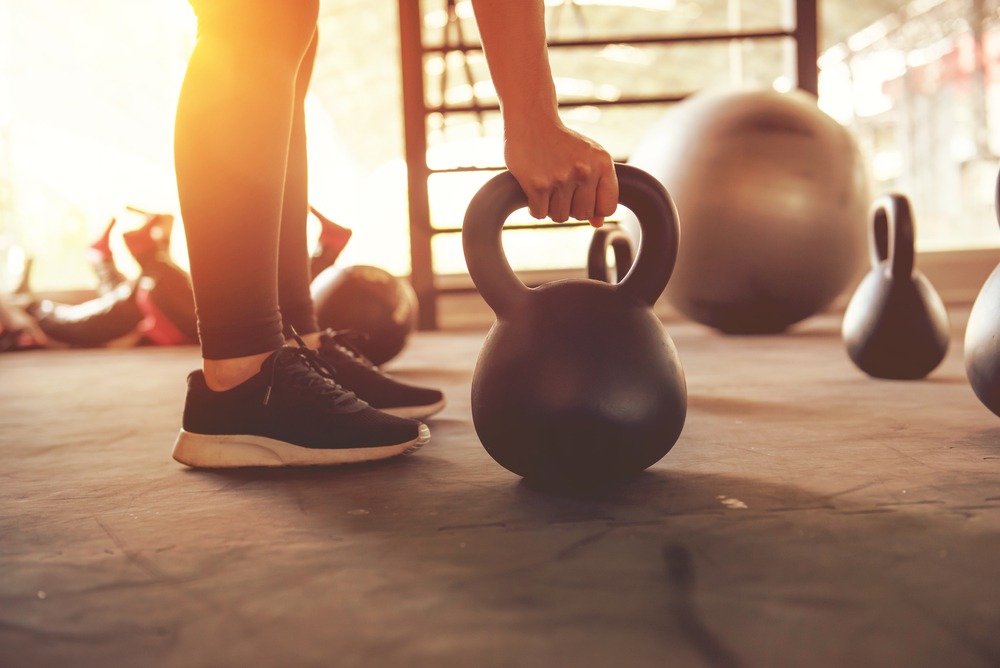Most athletes have an offseason, and in those weeks or months, they have time to rest and recover. During the offseason, it’s common for athletes to reduce their training load, which makes many athletes wonder if and how they should adjust their nutrition habits to align with the different activity levels. Here, we address some common questions around nutrition in the offseason.
Is it normal to gain weight in the offseason?
 It’s common for athletes to maintain a slightly higher weight when they are in the offseason, and in many cases, this can be healthy. Offseason can be an excellent time to put on muscle mass because athletes can devote more time to functional weight training.
It’s common for athletes to maintain a slightly higher weight when they are in the offseason, and in many cases, this can be healthy. Offseason can be an excellent time to put on muscle mass because athletes can devote more time to functional weight training.
Furthermore, athletes often find that their weight steadily drops when they reach their peak competition season, so offseason weight gain can provide a helpful buffer to ensure weight does not get too low during periods when training volume significantly increases. Caloric deficits can result from these high training loads, even when athletes try their best to prevent these deficits from happening. Increasing caloric intake and maintaining a slight caloric surplus during the offseason can help rebuild and restore lost or damaged muscle tissue, improve bone density, and restore menstrual and hormonal function to normal (Iraki et al., 2019).
During the offseason, athletes can make a concerted effort to correct nutritional deficiencies that can occur as a result of low energy availability—not eating enough calories to match training during the peak season. These deficiencies can include low iron (which can lead to anemia), and low vitamin D, vitamin B12, zinc, and magnesium (Larson-Meyer et al., 2018). Correcting nutritional deficiencies can increase athletes’ longevity, prevent injury from occurring, and reduce burnout in sport.
Should I restrict my intake in the offseason?
It is common for athletes to feel pressured to restrict their eating in the offseason to avoid this weight gain. Restrictive eating in the offseason (or any time through the year) can throw athletes into a vicious cycle of restricting calories during the day, followed by excessive and insatiable hunger that leads to overeating at night (Larson-Meyer et al., 2018). This can give athletes the sense that they are “out of control” around food and drive them to further restrict themselves from certain food items in order to keep bingeing at bay, which continues the cycle.
Restrictive eating, both in the offseason and during competition season, often causes more harm than good. Athletes who find themselves in this cycle may benefit from consulting with a registered dietitian with expertise in this pattern. Many registered dietitians and nutrition professionals do not recommend severely restricting “fun foods” such as sweets and refined carbohydrates. The offseason can be a time to liberalize the diet and enjoy these foods in moderation.
Should I make changes to my diet?
Eating around intense training can be difficult, especially for athletes who have sensitive stomachs and have to be very careful not to eat foods high in protein, fat, or fiber too close to training to avoid gastrointestinal distress (learn more about this in our article on nutrient timing).
In the offseason, athletes can take advantage of the reduction in training to increase their protein intake to ~2.0 grams per kilogram of body weight in order to address muscular losses that may have occurred during the peak competition season (Iraki et al., 2019). Athletes will likely find that they have more latitude to add high-fiber foods in the offseason that may otherwise cause GI distress around training, such as beans, chickpeas, lentils, and cruciferous vegetables.
Overall, the offseason can be a great time for athletes to adjust their nutrition habits by embracing more foods and in different quantities, which can help the body recover and prepare for the next season.
References
Corwin, R. L., & Buda-Levin, A. (2004). Behavioral models of binge-type eating. Physiology & Behavior, 82(1), 123–130. https://doi.org/10.1016/j.physbeh.2004.04.036
Iraki, J., Fitschen, P., Espinar, S., & Helms, E. (2019). Nutrition Recommendations for Bodybuilders in the Off-Season: A Narrative Review. Sports, 7(7), Article 7. https://doi.org/10.3390/sports7070154
Larson-Meyer, D. E., Woolf, K., & Burke, L. (2018). Assessment of Nutrient Status in Athletes and the Need for Supplementation. International Journal of Sport Nutrition and Exercise Metabolism, 28(2), 139–158. https://doi.org/10.1123/ijsnem.2017-0338
Read more Spirit of Sport blog posts



